Newborn Skin: What's Normal and Skin Care Tips

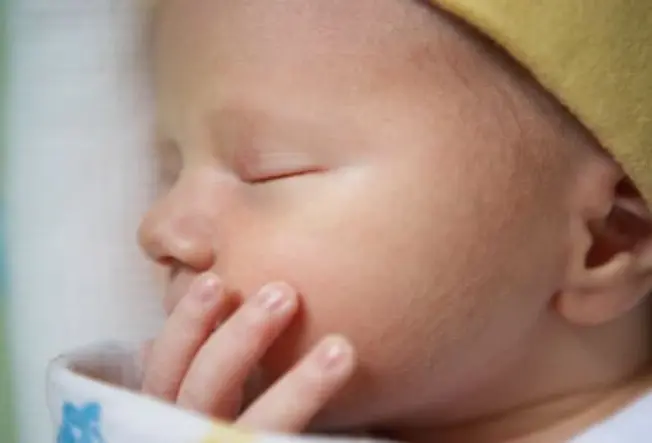
Healthy Baby Skin
Wrinkles, redness, dryness, and fuzz. Newborn skin is far from flawless but it usually doesn't mean something is wrong. Baby's skin is adjusting to life outside the womb. Most skin imperfections disappear over time. For example, premature babies sometimes have soft hair on their face and back. Late babies often have dry, peeling skin. Both should go away within a few weeks.
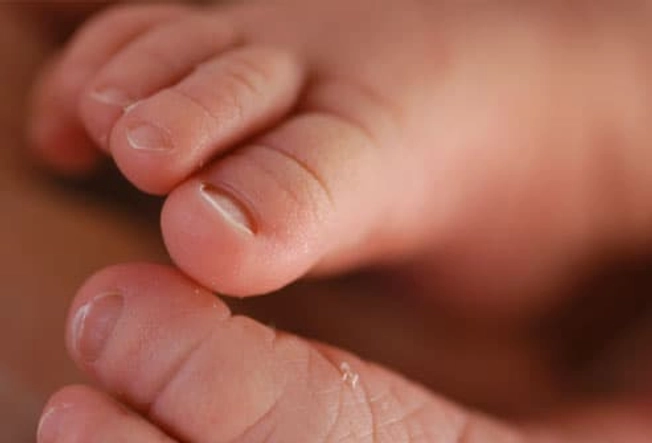
Baby Skin Is Sensitive
You likely don't need lotions or creams during baby's first month. When you do begin using skin care products, be sure to use only baby products. Baby skin is sensitive. Products formulated for adults may have dyes, fragrances, and cleansers that are too harsh for infant skin. In general, avoid using baby powders -- talc may cause lung problems, while cornstarch may aggravate a yeast diaper rash.
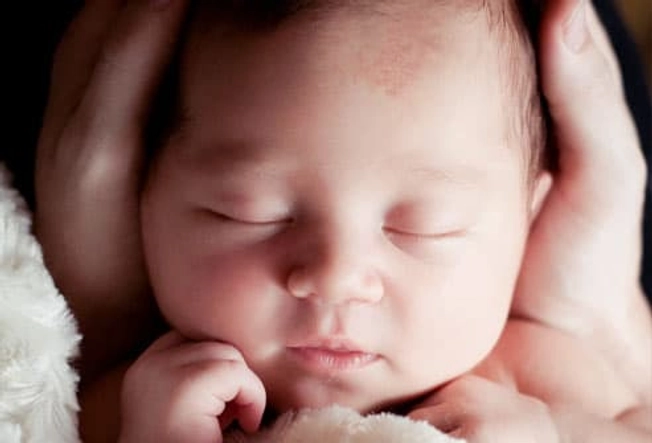
Stork Bites and Other Birthmarks
Immature blood vessels may cause small red patches called "stork bites" or "angel kisses." They can be on the face or back of the neck. Crying may make them brighter but they usually disappear within a year. Birth can cause other small scratches or blood spots on your newborn that should heal in a couple of weeks. Other types of birthmarks may stay around longer or never go away. If you're concerned, talk to your pediatrician.
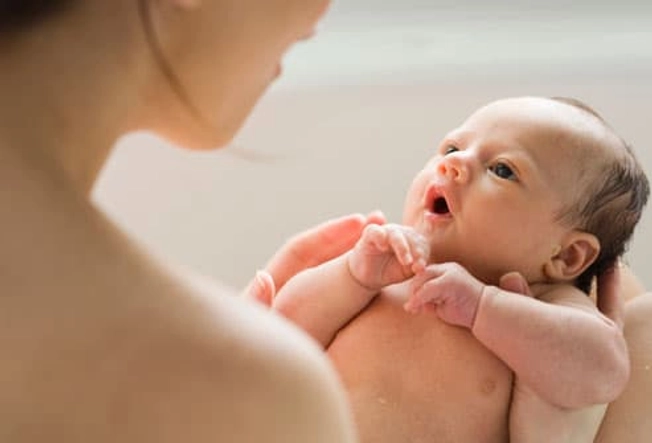
It's OK to Skip a Bath?
Babies don't need a daily bath. During the first few weeks, keeping baby clean during dirty diaper changes and doing sponge baths should do the trick. No full bath is needed until baby's about a month old. If they are younger than 1, they can be bathed just every 2-3 days. Bathing too often can dry the skin. Between baths keep baby's face and hands clean by wiping with a damp, warm washcloth. And don't forget the creases of the neck and arm pits.
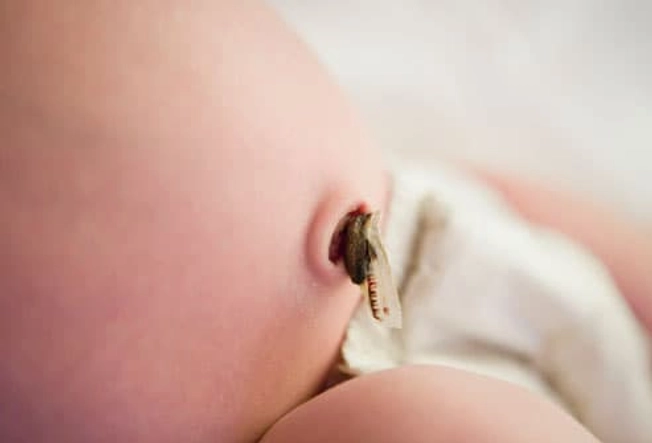
Umbilical Cord Stump Care
Until baby's cord falls off, avoid getting it wet. If it gets dirty, clean with a baby wipe or rubbing alcohol. Instead of full baths, try sponge baths. Gather a basin of warm water and clean washcloth so you can keep one hand on the baby at all times. Lay a soft towel on a clear, stable surface for baby to lie on. Keep them warm by leaving them wrapped in a towel, only uncovering the part of baby you're washing. When the cord does fall off, there may be slight oozing of blood. Don't worry about this -- just keep the area clean with soap and water. Talk to your doctor if you see pus or redness of the skin around the stump area or if you notice a bad odor.
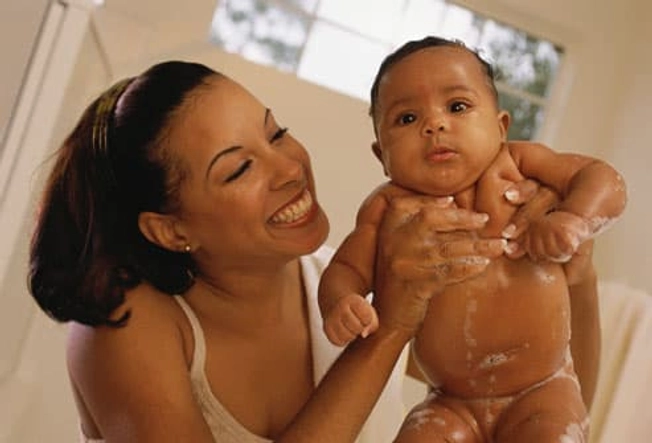
Avoiding Skin Problems at Bath Time
When baby's ready for full baths -- remember, their skin is soft and sensitive. You only need to fill the basin with 3-4 inches of water. Test water on the inside of your wrist to be sure it isn't too hot. Keep baby's skin hydrated by bathing in warm water for only three to five minutes. If using lotion, apply while baby is still wet, then pat dry instead of rubbing. To be safe, you should keep your hot water set for under 120 degrees.
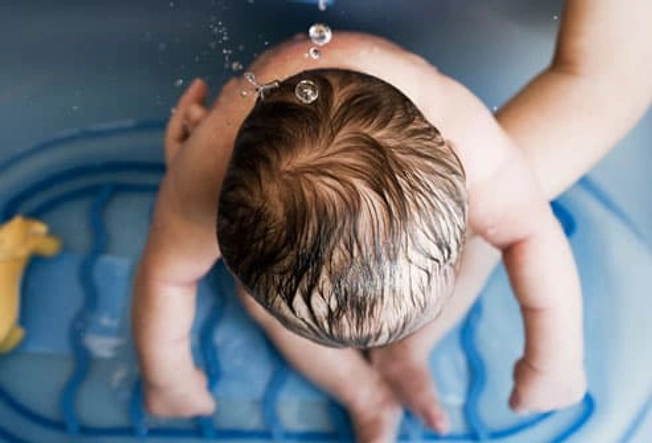
Baby's Hair
Once they are ready for baths and if they have hair, they’ll only need a shampoo once or twice a week. It's OK to gently wash their soft spots. Use a baby cleanser or baby shampoo. To avoid getting it in their eyes, cup your hand at their forehead to shield their face when rinsing. Or tilt their back a little so the water runs down their backside.
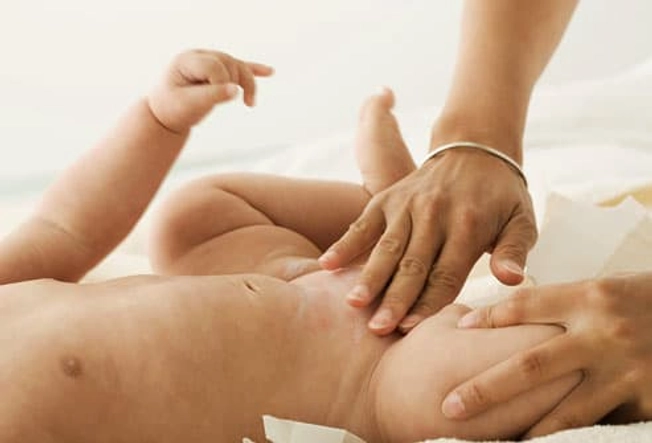
Diaper Rash
Wet and dirty diapers can irritate infant skin, causing diaper rash. Red and bumpy, it usually clears in a week. To help prevent diaper rash, check and change baby's diaper frequently. When changing a messy diaper, gently wipe baby clean and pat dry. Wipe girls front to back to avoid infections. If baby does get diaper rash, diaper cream can help. Also try letting baby go diaper-less for a bit to air out skin.
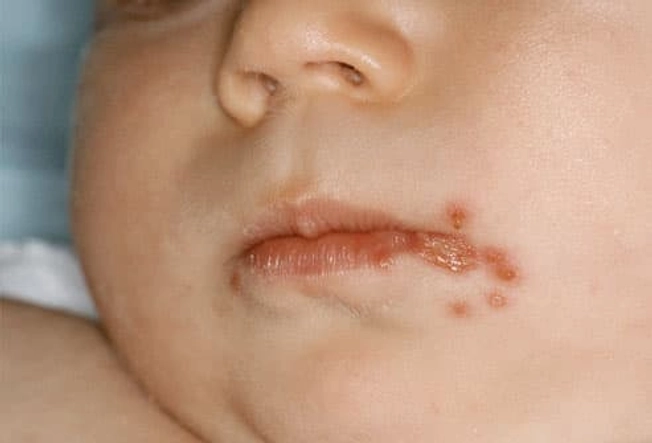
When to Call the Doctor
Babies get rashes. But call the doctor about a rash when there is itching, blisters form, skin is oozing or crusting, red or purplish dots appear all over, or baby has a fever. Eczema is the most common cause of itchy rashes in babies. But babies can also get contagious skin diseases. These may include: chickenpox; measles; hand, foot and mouth virus; herpes simplex (as seen here); scabies; and impetigo.
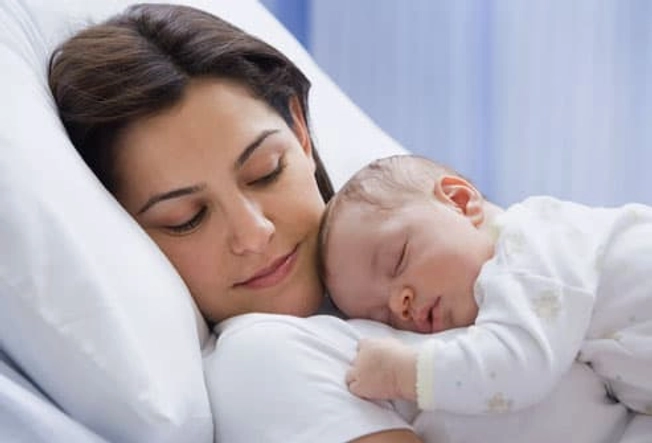
Laundry Tips for Baby Skin Care
Avoiding skin rashes will keep your baby smiling and happy: Use a gentle detergent to wash everything that touches your infant's skin, from bedding and blankets, to towels and even your own clothes. You'll cut down on the likelihood of baby developing irritated or itchy skin.
